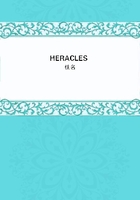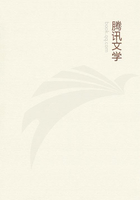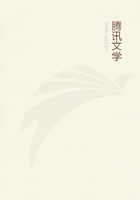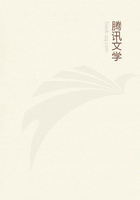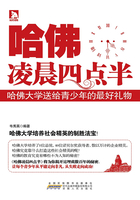Here lads and gay lasses in couples resort, For sweet rural pastime and innocent sport;Sure pleasures ne'er flowed from gay nature or skill, Like those that are found on sweet 'Robin Hood's Hill.'
Had I all the riches of matchless Peru, To revel in splendour as emperors do, I'd forfeit the whole with a hearty good will, To dwell in a cottage on 'Robin Hood's Hill.'
Then, poets, record my loved theme in your lays:
First view; - then you'll own that 'tis worthy of praise;Nay, Envy herself must acknowledge it still, That no spot's so delightful as 'Robin Hood's Hill.'
Ballad: BEGONE DULL CARE. (TRADITIONAL.)[WE cannot trace this popular ditty beyond the reign of James II, but we believe it to be older. The origin is to be found in an early French chanson. The present version has been taken down from the singing of an old Yorkshire yeoman. The third verse we have never seen in print, but it is always sung in the west of Yorkshire.]
BEGONE, dull care!
I prithee begone from me;
Begone, dull care!
Thou and I can never agree.
Long while thou hast been tarrying here, And fain thou wouldst me kill;But i' faith, dull care, Thou never shalt have thy will.
Too much care Will make a young man grey;Too much care Will turn an old man to clay.
My wife shall dance, and I shall sing, So merrily pass the day;For I hold it is the wisest thing, To drive dull care away.
Hence, dull care, I'll none of thy company;Hence, dull care, Thou art no pair for me.
We'll hunt the wild boar through the wold, So merrily pass the day;And then at night, o'er a cheerful bowl, We'll drive dull care away.
Ballad: FULL MERRILY SINGS THE CUCKOO.
[THE earliest copy of this playful song is one contained in a MS.
of the reign of James I., preserved amongst the registers of the Stationers' Company; but the song can be traced back to 1566.]
FULL merrily sings the cuckoo Upon the beechen tree;Your wives you well should look to, If you take advice of me.
Cuckoo! cuckoo! alack the morn, When of married men Full nine in ten Must be content to wear the horn.
Full merrily sings the cuckoo Upon the oaken tree;Your wives you well should look to, If you take advice of me.
Cuckoo! cuckoo! alack the day!
For married men But now and then, Can 'scape to bear the horn away.
Full merrily sings the cuckoo Upon the ashen tree;Your wives you well should look to, If you take advice of me.
Cuckoo! cuckoo! alack the noon, When married men Must watch the hen, Or some strange fox will steal her soon.
Full merrily sings the cuckoo Upon the alder tree;Your wives you well should look to, If you take advice of me.
Cuckoo! cuckoo! alack the eve, When married men Must bid good den To such as horns to them do give.
Full merrily sings the cuckoo Upon the aspen tree;Your wives you well should look to, If you take advice of me.
Cuckoo! cuckoo! alack the night, When married men, Again and again, Must hide their horns in their despite.
Ballad: JOCKEY TO THE FAIR.
[A VERSION of this song, not quite so accurate as the following was published from an old broadside in NOTES AND QUERIES, vol. vii., p.
49, where it is described as a 'very celebrated Gloucestershire ballad.' But Gloucestershire is not exclusively entitled to the honour of this genuine old country song, which is well known in Westmoreland and other counties. 'Jockey' songs constitute a distinct and numerous class, and belong for the most part to the middle of the last century, when Jockey and Jenny were formidable rivals to the Strephons and Chloes of the artificial school of pastoral poetry. The author of this song, whoever he was, drew upon real rural life, and not upon its fashionable masquerade. We have been unable to trace the exact date of this ditty, which still enjoys in some districts a wide popularity. It is not to be found in any of several large collections of Ranelagh and Vauxhall songs, and other anthologies, which we have examined. From the christian names of the lovers, it might be supposed to be of Scotch or Border origin; but JOCKEY TO THE FAIR is not confined to the North; indeed it is much better known, and more frequently sung, in the South and West.]
'TWAS on the morn of sweet May-day, When nature painted all things gay, Taught birds to sing, and lambs to play, And gild the meadows fair;Young Jockey, early in the dawn, Arose and tripped it o'er the lawn;His Sunday clothes the youth put on, For Jenny had vowed away to run With Jockey to the fair;For Jenny had vowed, &c.
The cheerful parish bells had rung, With eager steps he trudged along, While flowery garlands round him hung, Which shepherds use to wear;He tapped the window; 'Haste, my dear!'
Jenny impatient cried, 'Who's there?'
''Tis I, my love, and no one near;
Step gently down, you've nought to fear, With Jockey to the fair.'
Step gently down, &c.
'My dad and mam are fast asleep, My brother's up, and with the sheep;And will you still your promise keep, Which I have heard you swear?
And will you ever constant prove?'
'I will, by all the powers above, And ne'er deceive my charming dove;Dispel these doubts, and haste, my love, With Jockey to the fair.'
Dispel, &c.
'Behold, the ring,' the shepherd cried;
'Will Jenny be my charming bride?
Let Cupid be our happy guide, And Hymen meet us there.'
Then Jockey did his vows renew;
He would be constant, would he true, His word was pledged; away she flew, O'er cowslips tipped with balmy dew, With Jockey to the fair.
O'er cowslips, &c.
In raptures meet the joyful throng;
Their gay companions, blithe and young, Each join the dance, each raise the song, To hail the happy pair.
In turns there's none so loud as they, They bless the kind propitious day, The smiling morn of blooming May, When lovely Jenny ran away With Jockey to the fair.
When lovely, &c.
Ballad: LONG PRESTON PEG. (A FRAGMENT.)
[MR. BIRKBECK, of Threapland House, Lintondale, in Craven, has favoured us with the following fragment. The tune is well known in the North, but all attempts on the part of Mr. Birkbeck to obtain the remaining verses have been unsuccessful. The song is evidently of the date of the first rebellion, 1715.]

